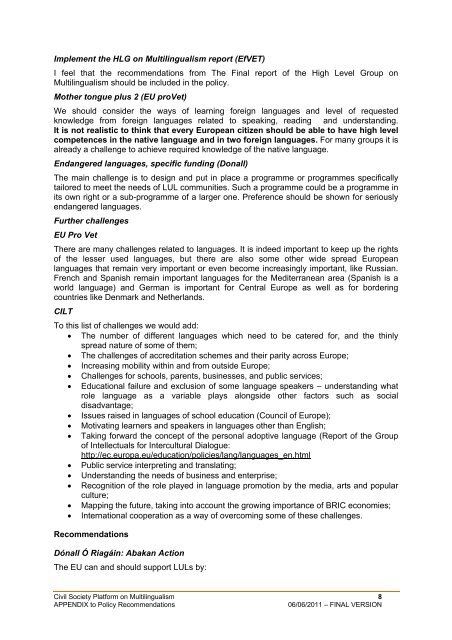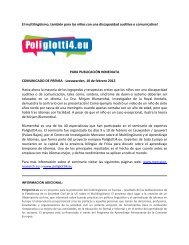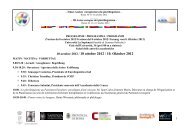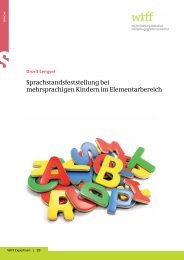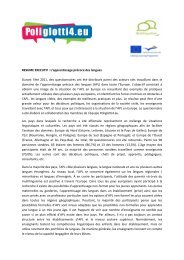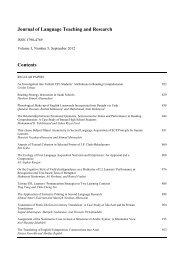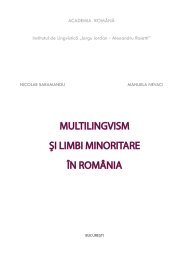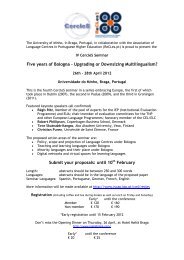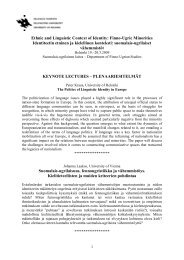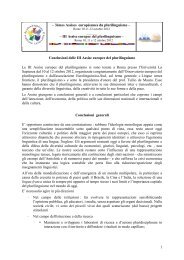FULL VERSION - European Commission - Europa
FULL VERSION - European Commission - Europa
FULL VERSION - European Commission - Europa
You also want an ePaper? Increase the reach of your titles
YUMPU automatically turns print PDFs into web optimized ePapers that Google loves.
Implement the HLG on Multilingualism report (EfVET)I feel that the recommendations from The Final report of the High Level Group onMultilingualism should be included in the policy.Mother tongue plus 2 (EU proVet)We should consider the ways of learning foreign languages and level of requestedknowledge from foreign languages related to speaking, reading and understanding.It is not realistic to think that every <strong>European</strong> citizen should be able to have high levelcompetences in the native language and in two foreign languages. For many groups it isalready a challenge to achieve required knowledge of the native language.Endangered languages, specific funding (Donall)The main challenge is to design and put in place a programme or programmes specificallytailored to meet the needs of LUL communities. Such a programme could be a programme inits own right or a sub-programme of a larger one. Preference should be shown for seriouslyendangered languages.Further challengesEU Pro VetThere are many challenges related to languages. It is indeed important to keep up the rightsof the lesser used languages, but there are also some other wide spread <strong>European</strong>languages that remain very important or even become increasingly important, like Russian.French and Spanish remain important languages for the Mediterranean area (Spanish is aworld language) and German is important for Central Europe as well as for borderingcountries like Denmark and Netherlands.CILTTo this list of challenges we would add: The number of different languages which need to be catered for, and the thinlyspread nature of some of them; The challenges of accreditation schemes and their parity across Europe; Increasing mobility within and from outside Europe; Challenges for schools, parents, businesses, and public services; Educational failure and exclusion of some language speakers – understanding whatrole language as a variable plays alongside other factors such as socialdisadvantage; Issues raised in languages of school education (Council of Europe); Motivating learners and speakers in languages other than English; Taking forward the concept of the personal adoptive language (Report of the Groupof Intellectuals for Intercultural Dialogue:http://ec.europa.eu/education/policies/lang/languages_en.html Public service interpreting and translating; Understanding the needs of business and enterprise; Recognition of the role played in language promotion by the media, arts and popularculture; Mapping the future, taking into account the growing importance of BRIC economies; International cooperation as a way of overcoming some of these challenges.RecommendationsDónall Ó Riagáin: Abakan ActionThe EU can and should support LULs by:Civil Society Platform on Multilingualism 8APPENDIX to Policy Recommendations06/06/2011 – FINAL <strong>VERSION</strong>


